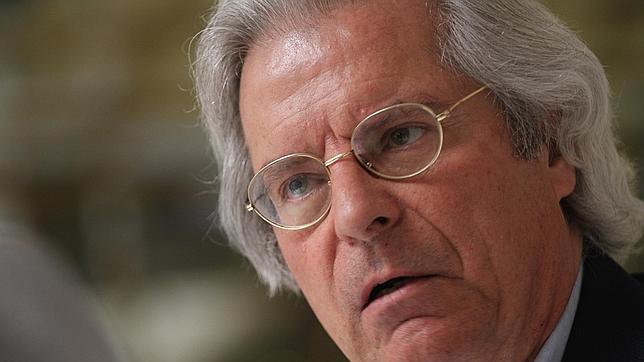11 things the EU Observer mission said about Ghana’s 2020 elections
The European Union Election Observation Mission in Ghana said some private media organisations showed bias in the election reportage.
The mission, in its analysis of the just-ended December 7 elections stated that United Television (UTV), the Chronicle and Daily Guide appeared to have tilted their reportage in favour of the New Patriotic Party.
It added that Adom FM and Joy FM also reported strongly for the National Democratic Congress.
With regards to representation of women in the political arena, the mission said the NPP had 24 women as against the NDC’s 22 women in the 275 constituencies.
This, according to them, showed a clear underrepresentation of women in politics, urging political parties to embrace more women.
They also commended the NDC presidential candidate for choosing a woman, Naana Jane Opoku Agyemang as a running mate and in effect breaking the long held hoodoo of women in politics.
Prior to the elections, the union had deployed 40 long-term observers across the country.
The observers were deployed across all of Ghana’s 16 regions to observe the electoral practices as Ghana choses its leaders for the next parliament.
Below are ten key observations made
-
- Voting on election day was well managed, voters were able to freely express their will, party agents were present in almost all polling stations and integrity measures for the identification of voters were respected. However, the secrecy of the vote was not always ensured, mainly due to poor layout of polling stations. Counting was transparent although procedures were frequently
not followed, and party agents received signed copies of the result forms.
- Voting on election day was well managed, voters were able to freely express their will, party agents were present in almost all polling stations and integrity measures for the identification of voters were respected. However, the secrecy of the vote was not always ensured, mainly due to poor layout of polling stations. Counting was transparent although procedures were frequently
-
-
- Fundamental human rights and freedoms are guaranteed by the Constitution and the legal framework generally provides for credible and competitive elections. However, previously identified gaps in the legal framework remain unaddressed. These include a lack of campaign finance regulation and no deadlines for the adjudication of parliamentary electoral petitions. There are also marked disparities in the size of various constituencies, affecting equal suffrage.
- The EC completed technical preparations for the elections in a timely manner and EU EOM observers assessed the EC’s national, regional and district structures as competent, well resourced and transparent.
-
-
- There are no unreasonable restrictions on the right to vote, and the principle of universal suffrage is respected. The EC compiled a new biometric voter register shortly before the elections, the timing of which was a source of major controversy, during the COVID-19 pandemic and less than six months before elections. The registration process, scrutinised by party agents and domestic observers, was inclusive and there were no serious challenges to the number of registered voters nationwide or in the regions. The final voter register, containing 17,029,971 voters, was certified by the EC on 6 November 2020.
-
- Candidate registration was generally inclusive, but nomination fees are unreasonably high. The exclusion of all active members of the extended public service, including lower ranks, from running for elections unduly limits the right to stand. There was a genuine contest in each constituency.
-
- Women are significantly underrepresented in political life: the New Patriotic Party (NPP) fielded only 24 female candidates while the NDC ran with just 22 in 275 constituencies. Perceived traditional roles of women, and, often, a lack of financial resources, contribute to the problem. On a positive note, for the first time one of the two main parties’ presidential candidates (NDC) chose a woman as running mate.
-
- The highly competitive and often confrontational campaign was dominated by President Nana Addo Dankwa Akufo-Addo of the NPP and opposition candidate, former president John Dramani Mahama (NDC). Due to COVID-19, large rallies were often replaced by smaller outdoor events and more frequent door-to-door visits. Campaign freedoms were broadly respected, but tensions were heightened over potential election-related violence associated with vigilantism. Misuse of state resources created an uneven playing field. Vote-buying by both the NPP and NDC was reported by civil society to be widespread.
-
- Constantly increasing costs of and unlimited spending on running election campaigns are a matter of concern. There are no limits on contributions or on spending, resulting in a lack of transparency and accountability around political and campaign funding. The EC did not enforce parties to comply with legal requirements on financial reporting. This further limits public scrutiny and transparency of political and campaign finance.
-
-
- The media reported freely on the elections in a polarized environment. State-owned GTV favoured the NPP in its election-related coverage. Furthermore, the ruling party and its presidential candidate benefited from extensive additional coverage on GTV, Uniiq FM and in the Daily Graphic through news and live broadcasts of government inaugurations. Various private media analysed by the EU EOM showed biased coverage in favour of the NPP (UTV, The Chronicle, Daily Guide) or the NDC (Adom FM and Joy FM).
- The two main parties deployed social media teams who posted content in a coordinated manner across a range of platforms to promote their presidential candidate and discredit the rival. Misinformation spread by both sides risked confusing voters and interfering in the formation of electoral opinions. Hate speech was not a feature of the online political discourse.
-
Read the full report below



